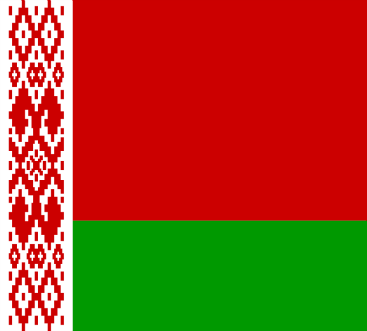Mr. Speaker, this Sunday, October 15th, Belarus will hold parliamentary elections. Based on the run-up to the elections, the possibility of free and fair elections simply does not exist. Belarusian strongman Alyaksandr Lukashenka, who illegally extended his own term in office, is once again attempting to dupe the international community into believing that there are viable electoral processes in today’s Belarus. The reality is different.
The Lukashenka regime has not met any of the four conditions that the Organization for Security and Cooperation in Europe setback last spring, namely, a democratic election law; an end to human rights abuses; access by the opposition to the state media; and genuine powers granted to the parliament. As a result, on August 30, the OSCE and other institutions decided not to send a full-fledged international observation team to Belarus. This decision could have been revisited if the situation in Belarus had improved. However, since August 30, the Lukashenka regime has denied registration to many opposition candidates on highly questionable grounds; detained, fined, or beaten over 100 individuals advocating a boycott of the elections; burglarized the headquarters of an opposition party; and confiscated 100,000 copies of an independent newspaper. My friend, opposition leader Anatoly Lebedka was physically assaulted during a commemoration of the one-year anniversary of the disappearance of opposition leader Viktor Gonchar and his associate Anatoly Krasovsky. I might add that another leader of the opposition, former Interior Minister Yuri Zakharenka, remains missing after having disappeared 17 months ago, and two leading opposition members, Andrei Klimov and Vladimir Koudinov, remain imprisoned on politically motivated charges.
Mr. Speaker, governmental interference in the election process appears to be rampant. There are reports that regional and local government executive committees have been threatened to ensure that government supported candidates will be elected. The registration process also showed strong signs of arbitrariness, with the rejection of a large percentage of candidates, especially opposition candidates. According to today’s Radio Free Europe-Radio Liberty East-Central Europe Report, Belarusian authorities, in an attempt to counter the opposition’s call for an election boycott, have begun urging early voting and even threatening reprisals if voters fail to go to the polls. Furthermore, in Brest, the government-controlled local press is publishing election materials devoted solely to one candidate.
All of these and other incidents, Mr. Speaker, have contributed to an atmosphere highly obtrusive to free and fair elections. Given the pre-election atmosphere, the international community will be hard-pressed to recognize the new parliament, which succeeds the old, Lukashenka hand-picked parliament that was not recognized by the OSCE Parliamentary Assembly and much of the international community. Moreover, the current election environment does not in any way inspire confidence that the presidential elections scheduled for next year will be democratic. Mr. Lukashenka would do well to keep in mind that, with the fall of Slobodan Milosevic, he becomes increasingly isolated as Europe’s sole remaining dictator.



